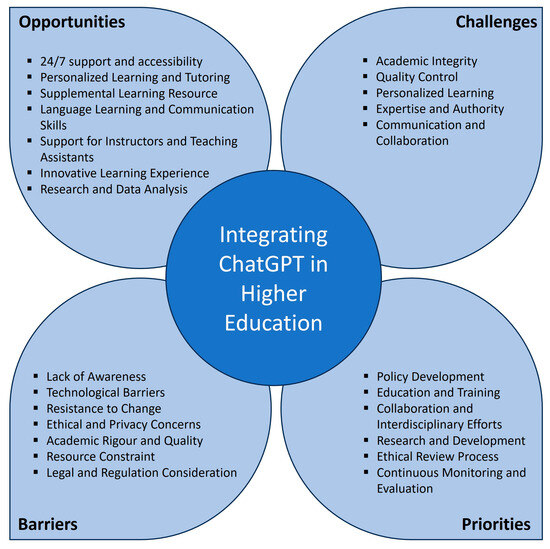Artificial Intelligence (AI) and ChatGPT are transforming various industries. Their impact is significant, but ethical concerns arise.
AI and ChatGPT have grown rapidly in recent years, making many tasks easier. Despite their benefits, these technologies come with ethical challenges. Issues like data privacy, bias, and job displacement are common worries. Users must understand these concerns to use AI responsibly.
This blog will explore the ethical implications of AI and ChatGPT, shedding light on potential risks. By understanding these issues, we can make informed decisions about AI technology. Let’s dive deeper into the ethical landscape of AI and ChatGPT.
Introduction To Ai Ethics
Artificial intelligence (AI) is transforming the way we live and work. But with rapid advancements come ethical concerns. Understanding AI ethics is crucial. It helps us navigate these changes responsibly.
Brief History Of Ai
AI’s journey began in the mid-20th century. Early researchers aimed to create machines that could mimic human intelligence. They succeeded in creating basic algorithms. These could solve simple problems.
In the 1980s, AI research saw a decline. Limited computing power was a major hurdle. Yet, AI bounced back in the 1990s. Improved algorithms and faster computers fueled this resurgence. AI started to make its mark in various fields.
The Rise Of Chatgpt
ChatGPT is a powerful AI language model. It was developed by OpenAI. ChatGPT can generate human-like text. It excels in understanding and responding to natural language.
ChatGPT’s abilities raise ethical questions. These include concerns about bias and misinformation. It’s important to address these issues. This ensures AI benefits everyone.
Privacy Issues
Privacy is a significant concern in the use of ChatGPT and AI. The handling of user data by these systems raises many questions. Users are often unaware of how their information is collected and used. This post will explore the privacy issues associated with ChatGPT and AI.
Data Collection Practices
Data collection is a core component of AI functionality. The systems require vast amounts of data to learn and improve. This data often includes personal information from users. The concern is how this data is collected and stored. Companies may collect more data than necessary, leading to potential misuse.
Here is an overview of common data collection practices:
- Collecting user conversations
- Tracking user interactions
- Storing user preferences
These practices can lead to privacy breaches. Users’ personal data might be exposed to unauthorized parties. There is also the risk of data being used for purposes not disclosed to the user.
User Consent
User consent is another critical aspect of privacy. Users must understand what data is being collected and how it will be used. Often, consent is obtained through lengthy terms and conditions. Many users do not read these documents fully. This lack of understanding can lead to uninformed consent.
Here are some key points related to user consent:
- Clear disclosure of data collection practices
- Simple and understandable terms of service
- Opt-in and opt-out options for data sharing
Ensuring that users are fully informed is essential. It helps build trust and ensures that privacy is respected. Companies must strive to make their data practices transparent.
Bias And Fairness
Bias and fairness in AI and ChatGPT have sparked significant ethical concerns. Many worry about these technologies’ potential to perpetuate and amplify existing biases. Understanding and addressing these concerns is crucial. Let’s dive deeper into the issues of algorithmic bias and ways to mitigate unfair outcomes.
Algorithmic Bias
Algorithmic bias occurs when AI systems produce unfair results. These biases stem from skewed training data. If the data reflects societal biases, the AI will too. This can lead to discriminatory practices. For example, AI used in hiring might favor certain groups over others. The impact can be broad and harmful.
Algorithmic bias is not always intentional. It often arises from historical data. If past data shows unequal treatment, the AI learns it. Unchecked, this bias can reinforce stereotypes. This poses a significant ethical challenge for developers and users alike.
Mitigating Unfair Outcomes
Mitigating unfair outcomes requires proactive measures. One approach is to diversify training data. Ensuring a wide range of inputs can help balance the AI’s learning. Another strategy is regular auditing of AI systems. Audits can identify and correct biases.
Transparency is also key. Developers should disclose how AI systems make decisions. This helps users understand potential biases. Involving diverse teams in AI development can also reduce bias. Different perspectives can lead to fairer outcomes.
Continuous monitoring is essential. AI systems evolve and can develop new biases. Regular updates and checks are necessary. This ensures the AI remains fair over time.

Credit: ethicspolicy.unc.edu
Transparency And Accountability
Transparency and accountability are crucial in the development and use of AI systems like ChatGPT. These elements ensure that AI operates in a way that is understandable and responsible. Without transparency, it becomes difficult to trust AI decisions. Accountability helps in addressing the consequences of AI actions.
Black Box Problem
The Black Box Problem refers to the lack of clarity in AI decision-making. Users often cannot see how AI arrives at a conclusion. This opaqueness raises trust issues. People want to know how and why decisions are made. A transparent system allows for better understanding and trust.
When AI decisions are hidden, it becomes hard to spot errors. It also makes it difficult to identify biases. Transparency in AI can help solve these issues. Developers need to make AI processes more open. This can be done through clear explanations and accessible data.
Responsibility In Ai Development
Responsibility in AI development means ensuring that AI actions are accountable. Developers must consider the ethical implications of AI. They should design systems that are fair and unbiased. This means testing AI for potential risks and correcting them.
Clear guidelines and standards are essential. They help hold developers accountable. It ensures that AI systems are safe and reliable. Responsibility also involves ongoing monitoring. Developers should keep AI systems updated and free from harmful biases.
Impact On Employment
The rise of ChatGPT and other AI technologies has sparked conversations about their impact on employment. While these technologies offer numerous benefits, they also raise ethical concerns. One major concern is how AI might affect jobs. Let’s explore this in detail.
Job Displacement
Many fear that AI could lead to job displacement. Automation can replace tasks previously done by humans. This is especially true in sectors like manufacturing, customer service, and data entry. A report by McKinsey suggests that up to 30% of tasks in 60% of jobs could be automated.
Job displacement can cause economic instability. Workers might find it hard to transition to new roles. They may lack the skills needed for emerging job markets. This can lead to higher unemployment rates and social unrest.
| Sector | Potential Job Loss |
|---|---|
| Manufacturing | 20% |
| Customer Service | 15% |
| Data Entry | 25% |
New Opportunities
On the flip side, AI can create new opportunities. Automation can lead to new roles in AI maintenance, programming, and data analysis. These roles often require more advanced skills and can be more fulfilling.
Companies might invest in reskilling programs. These programs can help employees transition to new roles. For example, a worker displaced from a manufacturing job might train as a robotics technician.
- AI Maintenance
- Programming
- Data Analysis
Governments and businesses can also play a role. They can create policies that support job transitions. This might include subsidies for training programs or incentives for hiring displaced workers.
- Invest in education
- Support reskilling
- Create job transition policies
While AI presents challenges, it also offers opportunities. Proper planning and support can help navigate these changes.

Credit: www.mdpi.com
Security Concerns
Security concerns about ChatGPT and AI are growing. These technologies can be powerful tools. But they can also be used in harmful ways. This makes it vital to understand the security risks.
Potential Misuse
ChatGPT can generate realistic text. This feature can be misused. For example, creating fake news or phishing emails. Cybercriminals may use AI to trick people. They can make scams look more convincing. This puts personal information at risk.
Safeguards And Regulations
There are efforts to set rules for AI use. Governments and organizations create guidelines. These rules aim to prevent misuse. They focus on protecting users’ data and privacy. Strict regulations can help reduce risks. They ensure AI is used ethically. This includes monitoring how AI is deployed. It also means holding users accountable.
Companies using AI must follow these rules. They need to implement strong security measures. This can prevent unauthorized access. It can also stop data breaches. Regular audits are important. They help ensure compliance. They check if the AI systems are secure.
Ethical Use In Communication
Artificial Intelligence (AI) has transformed how we communicate. AI tools, like ChatGPT, help generate responses, manage conversations, and offer information. But using AI in communication brings ethical concerns. We need to examine these issues closely.
Misinformation Risks
AI can unintentionally spread false information. It might generate answers that seem correct but are inaccurate. This is a serious problem. Misinformation can mislead people and cause harm. Regular checks of AI outputs are crucial. Ensure the information shared is accurate. Rely on trusted sources to verify facts.
Responsible Ai Deployment
Deploying AI responsibly is vital. Companies must ensure their AI tools are used ethically. AI should respect privacy and not share personal data. Developers need to set clear guidelines for AI use. Educate users on the ethical implications. Provide training on responsible AI communication.
Transparency is also important. Users should know they are interacting with AI. This helps build trust. Inform users about the limitations of AI. Encourage them to double-check critical information.

Credit: www.securityweek.com
Future Directions
The rapid development of ChatGPT and AI has brought about ethical concerns. These concerns necessitate addressing future directions to ensure responsible use. This section discusses evolving ethical guidelines and promoting sustainable AI.
Evolving Ethical Guidelines
Creating ethical guidelines for AI is crucial. It ensures technology benefits society without harm. Researchers and policymakers must work together. They should create clear, enforceable standards. These standards should protect user privacy and data security. Transparency in AI decision-making is vital. Users need to understand how AI systems make decisions. This builds trust and accountability. Regular updates to guidelines are necessary. As technology evolves, so must the rules governing it.
Promoting Sustainable Ai
Sustainable AI is key for long-term success. Developers should focus on minimizing environmental impacts. AI systems consume significant energy and resources. Implementing energy-efficient algorithms can reduce this burden. Using renewable energy sources for data centers is another step. Sustainable AI also means fair and equitable access. All communities should benefit from AI advancements. This avoids creating a digital divide. Promoting inclusivity ensures a broader range of perspectives. Diverse input leads to more robust and fair AI systems.
Frequently Asked Questions
What Are The Ethical Concerns Of Ai?
AI raises issues like bias, privacy, and job displacement. Ensuring transparency and accountability is vital. Ethical AI should prioritize human well-being.
How Does Chatgpt Handle User Privacy?
ChatGPT follows strict privacy policies. It does not store personal data. Always review the platform’s privacy policy for details.
Can Ai Be Biased?
Yes, AI can inherit biases from training data. Continuous monitoring and updating are essential to minimize bias and ensure fairness.
How Can Ai Impact Job Markets?
AI can automate tasks, potentially leading to job loss. However, it can also create new opportunities and roles in tech.
Conclusion
Balancing AI’s benefits with ethical concerns is crucial. ChatGPT offers many advantages. Yet, potential misuse exists. Privacy, bias, and job displacement are real issues. We must address these responsibly. Ongoing dialogue and regulations are key. Ethical use ensures AI benefits all.
Let’s prioritize responsible AI development. Working together, we can achieve this goal.